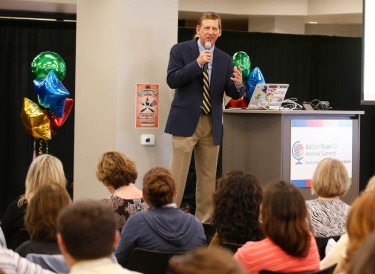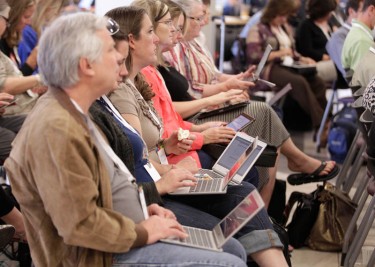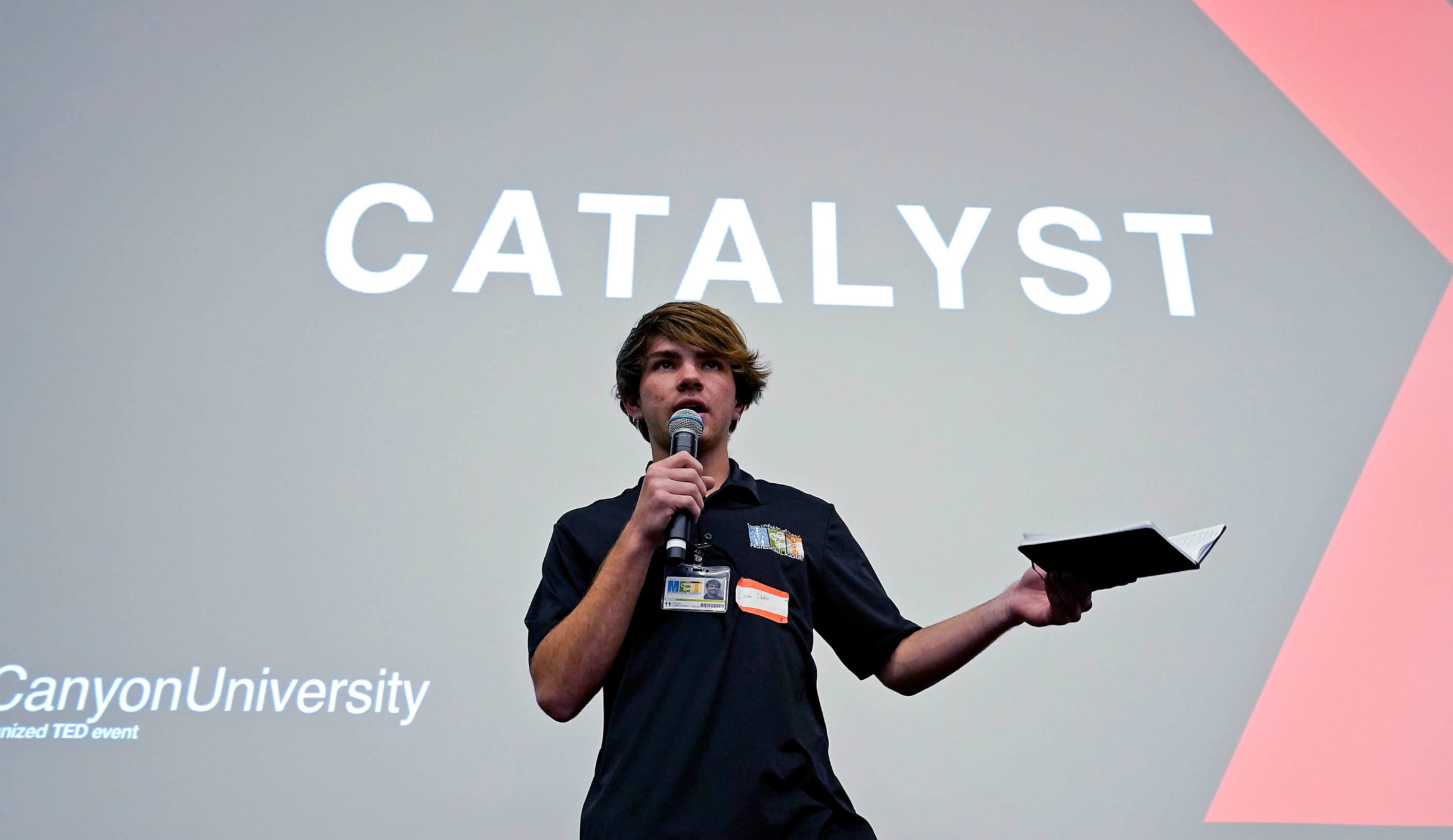Story by Janie Magruder
Photos by Darryl Webb
GCU News Bureau
In his 1988 bestselling book, “All I Really Need to Know I Learned in Kindergarten,” author Robert Fulghum suggested that the best of life’s lessons could be found not in graduate school but in the Golden Rule sandbox: Play fair, say you’re sorry when you hurt someone, no hitting, flush.
At the top of Fulghum’s list: Share everything. An energetic team of Google experts, which spent two days this week at Grand Canyon University demonstrating the search giant’s coolest education apps, would not disagree.
“Collaborate, share, publish” was among the themes of the Google EdTechTeam Arizona summit, which GCU co-presented on Tuesday and Wednesday with the Arizona K12 Center in Phoenix. More than 50 sessions housed in the College of Education, the College of Nursing and Health Care Professions and the Student Union drew an estimated 300 administrators, principals, teachers, librarians, technology leaders and integration specialists from schools across the state.
The conference was opened on Tuesday with remarks from GCU’s president and CEO, Brian Mueller, followed by a keynote address from Jaime Casap, a Google global education “evangelist,” who gave the Class of 2014 kindergarteners – tomorrow's leaders – respect for their technological acumen.
“Think about a 5-year-old looking at your iPad, your tablet, your iPhone, and it’s the worst technology that 5-year-old has ever seen in their lives. It’s so big, it doesn’t bend, and they’re going to laugh that I have to charge it every night. It’s their Commodore 64,” Casap said. “That’s the generation of kids that are starting in our schools this fall. Are we ready for that?”
___
Squeezing into every square inch of Room 205 in the COE building on Tuesday morning were people keen on hearing about what Cori Araza and Karen Messing, teachers in the Paradise Valley School District, are doing. They were accompanied by Araza’s students at Paradise Valley High, Jessie Lindenberg and Jake Tavrytzky, who are part of a team that is tutoring students in the first through eighth grades to build websites.
Yes, some students who are just learning to write the alphabet also are learning to write HTML code.
“To me, the most important thing about my students learning to code is learning to think and problem solve,” said Mensing, who teaches first- and second-graders at Fireside Elementary in Phoenix. “The collaboration and higher-level thinking skills they have developed during this project is absolutely amazing.”
Lindenberg talked about the reciprocal learning relationship she and other students in Araza’s Coding Tutoring Project have with Mensing’s young learners.
“They asked us how to change the colors, and we said we’d get to that in the next lesson, and by the time that came around, they’d figured it out already,” Lindenberg said.
___
The first day of the conference ended with a Demo Slam, a “geek-out” session in which 13 presenters shared three minutes of their most geeky use or tip/trick of a Google app. Audience members then voted for their favorite.
Timekeeper/emcee Chris Bell, a Google EdTechTeam leader and Ricky Gervais look-alike, introduced the presenters, who demonstrated tools such as Teacher Dashboard, which lets teachers see what’s really on their students’ screens in class (Facebook, Minecraft, etc.) and close the programs, even from a remote location, and YAMM (Yes Another Mail Merge), a more personalized program to communicate with parents.
Jim Sill, a Google consultant who bears a slight resemblance and energy level to Charlie Sheen, roused the audience with a “Thank you for not getting me fired” gmail. He demonstrated simple ways to undo sending emails, perhaps unwisely worded to unreasonable parents in a moment of anger, and to create canned responses to them that preserve job security.
“You’re welcome!” Sill shouted to the applauding conference goers.
Moments later, he was voted the favorite.
___
Education consultant Holly Clark, a former teacher, spoke on Wednesday morning about classroom tools such as Animoto (video), Tellagami (narrated animations), Flubaroo (quiz form), Hangouts (social network) and YouTube Book Channel (book review sharing). Clark said the technologies engage students in ways that doing solo book reports and research with paper and pencils no longer are effective.
A few years ago, her San Diego students and some Australian pupils collaborated on a project on sugar, quickly writing and editing back and forth despite being 7,500 miles apart. Along the way, her students learned from their peers that high fructose corn syrup is outlawed Down Under, which led to discussions on genetically-modified foods and corn subsidies.
“My kids became global citizens that day,” Clark said. “They learned something.”
Contact Janie Magruder at 639.8018 or [email protected].
























































